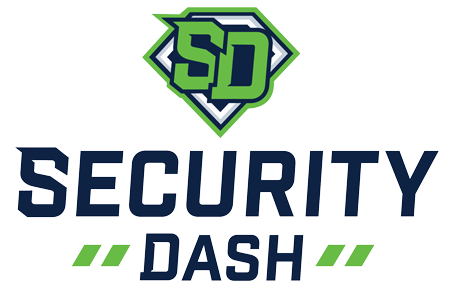In this series, we introduce you to the employees at Security Dash
What do you do for PSA?
My focus is on the security staff. I find talent, handle the hiring process, and help with scheduling. I am the lead on the training process and I’m in charge of the patrol division and reporting.
What’s your background?
I’ve been an officer at the Omaha Police Department for nearly 12 years and doing private security for over 16 years. I’ve worked at all four police precincts and all four shifts,which has given me a unique understanding of problems in each area during all times of the day.
I’ve gotten the opportunity to do some really cool things in my career. I was part of the security details for Presidential Candidates Hilary Clinton and Donald Trump and was selected to travel to Washington D.C. for the past inauguration to provide security for President Trump. I’ve also earned the Lifesaving Medal, Unit of Excellence Medal, and was an Officer of the Year Nominee in 2013.
What kind of trainings do you conduct for PSA officers?
Our training is incredibly customized depending on the type of account the officer is training for. It could be armed, unarmed, patrol, dedicated security, event security, alarm response, or bodyguard protection. We don’t have a “one size fits all” training – each job has its own nuances and training needs.
In my own training, I’m skilled in interview and interrogation techniques, basic and advanced gang interdiction, NIMS, biological and radiological awareness training, incident response to terrorist bombings, bike patrol training, and rifle and non-lethal weapons. I use all of this background when I teach our security guys.
One of the skills we always teach no matter the type of job is deescalation techniques. We believe strongly that we can prevent incidents from becoming a problem by simply remaining vigilant and helping to keep people calm during a high stress situation.
What are you looking for when you hire onto your security team?
Having any kind of prior security experience is always a great start, like armed security, military, or law enforcement. Even professionals with experience in nursing homes or mental health facilities can be relevant because they often have crucial skills in de escalation. For soft skills, I’m looking for someone who is detail oriented and has good observational skills.
I’m most excited to work with someone who clearly wants to keep learning new skills. Some of our staff had 120 hours of training before they can work a job – and then they continue with voluntary training after that. I love to help these guys grow with their security career and advance to supervisory positions.
What sets PSA apart from other security firms?
The experience of our leadership team. Most security companies are run by security professionals, but we are run by emergency management experts. Our training, processes, and expectations are incredibly thorough and rooted in combined decades of experience.
Also, we choose employees over profits. We all used to work in the security field and we know what a demanding job it is. We hire the best and take good care of them.
How has your experience with the police department helped you develop PSA into a world class security firm?
We’ve mirrored many things that the police department does in our standard practices. For instance, our patrol tactics. We know how to differentiate higher priority incidents, how to deter crime, and how to most effectively randomize patrols.
We teach the overlooked skill of information gathering and sharing. I’ve seen so many security professionals at other firms who don’t ask questions – they simply take the small amount of information they are given and do the best they can. At PSA, we dig for crucial details that make the difference in being prepared to offer the best security possible.
What is the #1 thing individuals can do to protect themselves?
We always say, “If you see something, say something”. A lot of people are afraid to get involved so they don’t say anything when they see something shady. This is particularly true in apartment complexes. I saw a great example of this just recently at an apartment community we provide security for. We got a call that a lock was broken on one of their doors. By the time it had been reported, it had been broken for at least 3 days. During that time, 200 people had walked past that broken door. I’m sure that some people didn’t notice – but a good majority assumed someone else would tell management or they just didn’t think it was their responsibility to report it. We all have to work together to keep things safe.
What is the #1 thing a business can do to protect themselves?
Businesses could solve so many problems if they would employ access control – key cards or have people buzzed into buildings. It doesn’t cost much and is very effective.
Of course, the second thing is hire security!
